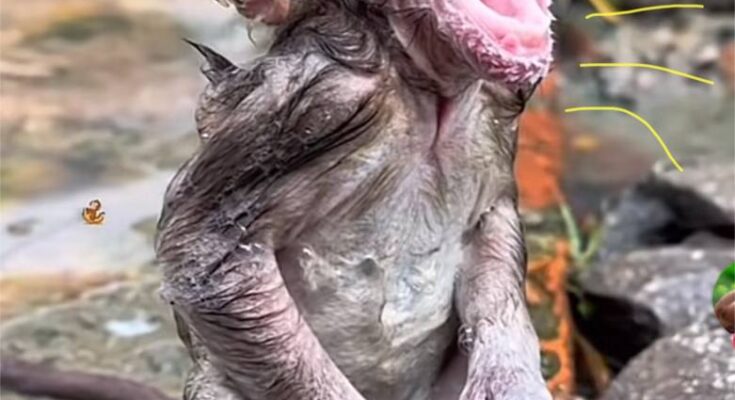Soap Can Harm the Eyes of Monkeys When We Don’t Clean Them Properly
Monkeys are intelligent, curious animals that often live in close proximity to humans—whether in sanctuaries, research centers, or even urban environments. As such, caretakers and researchers must take special care to maintain proper hygiene, especially when cleaning monkey enclosures or even bathing the animals when necessary. One often-overlooked danger in this process is the use of soap and cleaning products. While soap is essential for cleaning, improper rinsing or use can pose a serious threat to a monkey’s eyes, potentially leading to irritation, infection, or even permanent damage.
Why Are Monkey Eyes So Vulnerable?
Much like human eyes, monkey eyes are highly sensitive and protected by thin, delicate membranes. However, monkeys—especially younger ones—lack the same instincts or awareness to avoid rubbing or touching their eyes after exposure to soap. In natural environments, they do not encounter synthetic chemicals. Therefore, their bodies are not adapted to handling these substances, making them more prone to adverse reactions.
When soap or detergent residue remains on surfaces such as cage bars, feeding utensils, or bedding, monkeys may unknowingly come into contact with it and then touch their eyes. This simple act can result in redness, inflammation, or watery eyes. In more severe cases, especially with harsh or scented cleaning products, the soap can cause corneal abrasions or chemical burns.
Common Mistakes That Lead to Eye Harm
One of the most common issues arises during cleaning of enclosures. Caregivers might use soap or disinfectants to clean cages but fail to rinse thoroughly. Even a small amount of residue left behind can be dangerous. Similarly, when monkeys are bathed—usually only in rare medical or hygiene-related situations—care must be taken to avoid getting shampoo or soap into their eyes.
Another mistake is using human-grade or industrial soaps that are not formulated for animals. These products may contain fragrances, preservatives, or other ingredients that are too harsh for monkeys’ sensitive skin and eyes.
How to Protect Monkeys During Cleaning
To reduce the risk of eye injuries from soap, here are a few key practices:
- Use animal-safe cleaning products – Choose soaps and disinfectants specifically designed for use around animals. These are typically non-toxic and less likely to cause irritation.
- Rinse thoroughly – Always ensure that any cleaned surface is fully rinsed and dried before allowing animals back into the area.
- Avoid soaps near the face – If you must wash a monkey, avoid the face area altogether or use a soft, damp cloth with just warm water.
- Monitor for symptoms – If a monkey shows signs of eye discomfort such as redness, squinting, or excessive tearing, consult a veterinarian immediately.
Final Thoughts
Soap is a helpful tool in maintaining hygiene, but when it comes to animal care, especially with primates like monkeys, it must be used with extreme caution. Proper cleaning techniques are not just about cleanliness—they’re about protecting the health and well-being of the animals. By being mindful of how we clean and what products we use, we can prevent unnecessary harm and ensure a safe, healthy environment for our primate companions.



